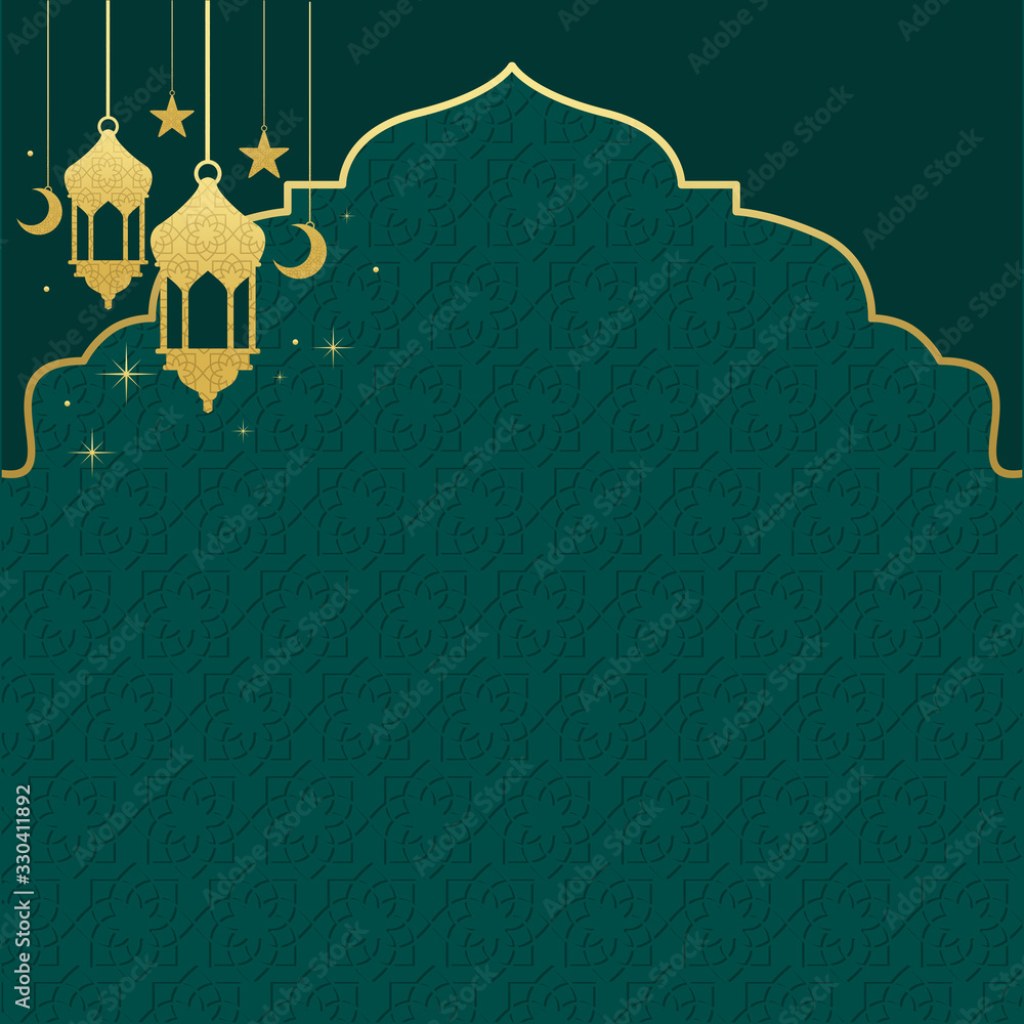Embrace The Serenity Of Ramadan With Our Exquisite Islamic Background – Click To Enrich Your Experience Now!
Ramadan Islamic Background: A Time of Spiritual Renewal and Reflection
Greetings, Ramadhan enthusiasts! As we approach the holy month of Ramadan, it’s important to understand the significance and background of this sacred time for Muslims around the world. Ramadan, also spelled Ramadhan, is a month-long period of fasting, prayer, and reflection observed by Muslims worldwide. In this article, we will delve into the rich history and practices associated with Ramadan, shedding light on its importance and providing a comprehensive understanding of this Islamic tradition.
What is Ramadan?
🌙 Ramadan is the ninth month of the Islamic lunar calendar and holds immense significance for Muslims. It is a time of heightened spirituality, self-reflection, and increased devotion to Allah. During this month, Muslims abstain from food, drink, smoking, and other physical needs from dawn to sunset, focusing their attention on prayer, recitation of the Quran, and acts of charity.
3 Picture Gallery: Embrace The Serenity Of Ramadan With Our Exquisite Islamic Background – Click To Enrich Your Experience Now!



The Origins of Ramadan
Ramadan holds a special place in Islamic tradition as it marks the month in which the first verses of the Quran were revealed to the Prophet Muhammad (peace be upon him) by Allah through the angel Gabriel. This revelation, which occurred in the year 610 CE, is believed to have taken place during the Laylat al-Qadr (Night of Power), a night of great spiritual significance within the last ten nights of Ramadan.
During Ramadan, Muslims strive to emulate the actions and teachings of the Prophet Muhammad (pbuh), focusing on acts of kindness, generosity, and self-discipline. It is considered a time of purification and spiritual growth, providing an opportunity for Muslims to strengthen their relationship with Allah and seek forgiveness for their sins.
Who Observes Ramadan?

Image Source: freepik.com
🕌 Ramadan is observed by Muslims around the world, spanning different cultures, ethnicities, and nationalities. It is a time of unity and communal worship, bringing Muslims together in their shared commitment to faith. From Indonesia to Egypt, Turkey to Saudi Arabia, millions of Muslims participate in the rituals and traditions associated with Ramadan.
The Obligation of Fasting
Fasting during Ramadan is considered one of the Five Pillars of Islam, along with the declaration of faith, prayer, giving to charity, and the pilgrimage to Mecca. It is obligatory for all adult Muslims, with exceptions for those who are ill, pregnant, nursing, menstruating, traveling, or experiencing any other valid reasons that may exempt them from fasting.
The act of fasting during Ramadan is seen as an act of worship, a way to purify the soul and demonstrate obedience to Allah’s commandments. It serves as a reminder of the blessings and abundance that one may often take for granted, fostering empathy and gratitude towards those less fortunate.
When Does Ramadan Occur?
📅 Ramadan is based on the Islamic lunar calendar, which consists of twelve lunar months, each lasting approximately 29 to 30 days. As such, the start and end dates of Ramadan vary each year based on the sighting of the new moon. The beginning of Ramadan is typically determined by the sighting of the crescent moon, making it a global event that relies on the lunar sighting in each region.
The Importance of Moon Sighting

Image Source: vecteezy.com
Muslims eagerly await the sighting of the new moon, which signifies the beginning of Ramadan. Moon sighting committees or local religious authorities play a crucial role in determining the official start date of Ramadan in different regions. This practice fosters a sense of anticipation and unity within the Muslim community, as they eagerly await the announcement of the new moon.
Where is Ramadan Celebrated?
🌍 Ramadan is celebrated by Muslims all over the world, transcending geographical boundaries and cultural differences. Whether you find yourself in the bustling streets of New York City or the serene landscapes of Indonesia, the spirit of Ramadan is palpable.
International Traditions
While the essence of Ramadan remains the same, various cultural traditions have emerged within Muslim communities worldwide. From the lavish iftar feasts in the Middle East to the festive Ramadan bazaars in Southeast Asia, these traditions add a unique flavor to the observance of Ramadan, reflecting the diversity and richness of the Muslim world.
Why is Ramadan Significant?
✨ Ramadan holds great significance for Muslims, serving as a time of spiritual rejuvenation, self-discipline, and deepened devotion. It is a period of intense self-reflection, allowing individuals to evaluate their actions, seek forgiveness, and strive for self-improvement. The act of fasting helps Muslims develop self-discipline, empathy, and gratitude while fostering solidarity among the community.
A Time for Renewal

Image Source: ftcdn.net
Moreover, Ramadan offers an opportunity for Muslims to strengthen their relationship with Allah through increased prayer, recitation of the Quran, and acts of charity. It is a time to reconnect with one’s faith, seek closeness to Allah, and seek guidance for the challenges faced in daily life. Ramadan is seen as a chance for individuals to reset their spiritual compass and emerge as better, more compassionate versions of themselves.
How is Ramadan Observed?
🕌 The observance of Ramadan is characterized by various rituals and practices that allow Muslims to fully immerse themselves in the spiritual ambiance of the month.
Fasting from Dawn to Sunset
The most prominent aspect of Ramadan is fasting, with Muslims abstaining from food, drink, smoking, and other physical needs from dawn to sunset. This act of self-control serves as a reminder of the importance of mindfulness and moderation in one’s life, as well as a demonstration of devotion to Allah.
Increased Prayer and Quran Recitation
During Ramadan, Muslims engage in additional prayers, known as Taraweeh, which are performed after the evening prayer. These prayers are recited in congregation and consist of lengthy portions of the Quran. The recitation of the entire Quran throughout the month is a common goal for many Muslims, aiming to complete it by the end of Ramadan.
Charitable Acts and Community Spirit
Charitable acts, such as giving to the needy, are highly encouraged during Ramadan. Muslims are urged to be generous and empathetic towards those less fortunate, reinforcing the values of compassion and caring for others. Additionally, communal iftar meals, where Muslims break their fast together, foster a sense of community and solidarity.
The Night of Power
As mentioned earlier, the last ten nights of Ramadan hold special significance, particularly the Laylat al-Qadr, or the Night of Power. Muslims spend these nights in intense prayer, seeking blessings and forgiveness. It is believed that worship on this night is equivalent to a thousand months of worship, making it one of the most spiritually powerful nights of the year.
The Pros and Cons of Ramadan
Advantages of Ramadan
1. Spiritual Growth: Ramadan provides an opportunity for individuals to deepen their faith, reconnect with Allah, and seek spiritual growth. The act of fasting and increased devotion helps Muslims strengthen their relationship with their Creator.
2. Self-Discipline: Fasting during Ramadan cultivates self-discipline, teaching individuals to control their desires and develop willpower. This can have positive effects on one’s personal and professional life, fostering discipline and perseverance.
3. Empathy and Gratitude: By experiencing hunger and thirst firsthand, fasting during Ramadan instills empathy and gratitude in individuals. It reminds them of the blessings they often take for granted and encourages them to be more compassionate towards those in need.
4. Community and Unity: Ramadan brings Muslims together in worship and celebration, fostering a sense of community and unity. The shared experience of fasting and breaking the fast together strengthens bonds among family, friends, and the wider Muslim community.
5. Health Benefits: While primarily a religious practice, fasting during Ramadan can have health benefits, such as weight loss, improved digestion, and increased mental clarity. However, it is important to maintain a balanced diet during non-fasting hours to reap these benefits.
Disadvantages of Ramadan
1. Physical Challenges: Fasting for long hours can be physically challenging, particularly for individuals with certain medical conditions. It is essential to consult a healthcare professional if fasting may pose a risk to one’s health.
2. Productivity and Energy Levels: The changes in eating and sleeping patterns during Ramadan may affect productivity and energy levels, especially for those who have physically demanding jobs or strenuous academic commitments.
3. Potential for Overeating: While the iftar meal is meant to break the fast, it is important to consume balanced meals and avoid excessive indulgence. Overeating during Ramadan can lead to digestive issues and negate the health benefits of fasting.
4. Sleep Disruptions: The late-night prayers and pre-dawn meals may disrupt sleep patterns during Ramadan, which can affect individuals’ overall well-being and daily functioning.
5. Social Adjustments: In societies where the majority of individuals do not observe Ramadan, social events and daily routines may need to be adjusted. This can lead to feelings of isolation or the need to explain one’s fasting to others.
Frequently Asked Questions (FAQs)
Q1: Can children and the elderly fast during Ramadan?
A1: Children are not obligated to fast until they reach puberty, although some may choose to participate in fasting for a few hours a day. The elderly, pregnant women, and those with health conditions are exempt from fasting if it poses a risk to their well-being. It is important to prioritize one’s health and consult a healthcare professional if unsure.
Q2: Are there exceptions to fasting during Ramadan?
A2: Yes, there are certain circumstances in which fasting is not required or allowed. These include illness, pregnancy, breastfeeding, menstruation, travel, and other valid reasons that may exempt an individual from fasting. It is important to consult a religious authority or scholar for guidance in such cases.
Q3: Can non-Muslims participate in Ramadan?
A3: While fasting is primarily an Islamic practice, non-Muslims can participate in Ramadan by engaging in acts of solidarity and understanding. This may include showing support for Muslim friends or colleagues who are fasting, attending community iftar meals, or simply learning more about the significance of Ramadan.
Q4: Is it permissible to brush teeth or use mouthwash while fasting?
A4: The use of toothpaste, mouthwash, or brushing one’s teeth does not invalidate the fast, as long as one avoids swallowing any substances. It is recommended to use a non-alcoholic mouthwash and be cautious not to swallow any water while rinsing.
Q5: What is Eid al-Fitr?
A5: Eid al-Fitr, often referred to as the Festival of Breaking the Fast, marks the end of Ramadan. It is a joyous celebration that involves communal prayers, feasting, charitable acts, and spending time with family and loved ones. Muslims around the world come together to celebrate the successful completion of the month of fasting.
Conclusion
In conclusion, Ramadan is a time of spiritual reflection, self-discipline, and increased devotion for Muslims worldwide. It provides an opportunity for individuals to strengthen their relationship with Allah, seek forgiveness, and strive for self-improvement. Through fasting, prayer, and acts of charity, Muslims embody the essence of Ramadan, fostering empathy, gratitude, and unity within their communities. As the holy month approaches, let us embrace the teachings and values of Ramadan, striving for personal growth and making a positive impact on those around us.
Take action today and embark on a transformative journey during the month of Ramadan. May this blessed month bring you peace, happiness, and spiritual fulfillment. Ramadan Mubarak!
Please note that the information provided in this article is for educational purposes only and should not be considered as religious or medical advice. It is always recommended to consult with religious authorities or healthcare professionals for specific guidance and rulings regarding fasting and health-related matters.
This post topic: Ramadhan


